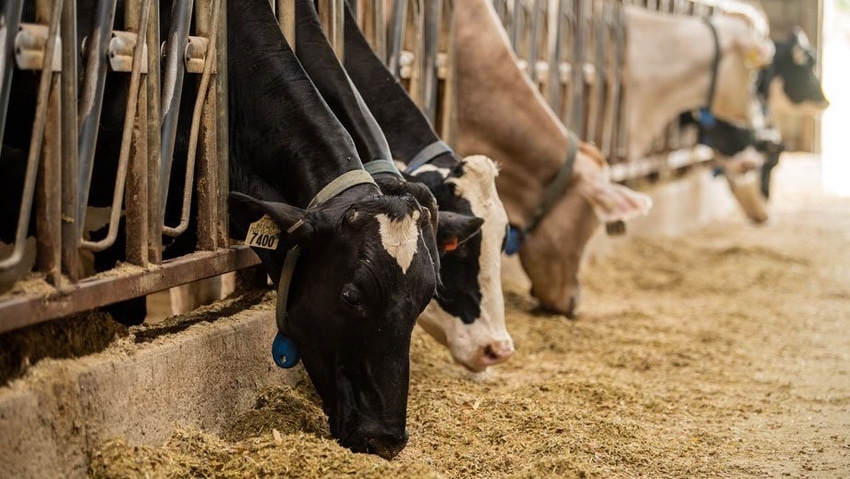Methionine may act on gene level to improve dairy cow health, production
Supplementing cow’s diet with amino acid methionine for 30 days after calving can improve feed intake and milk quality.
January 9, 2020

Within the first week of giving birth, a high-yield dairy cow can increase milk production to as much as 100 lb. per day, according to assistant professor Johan Osorio of South Dakota State University’s department of dairy and food science.
“This dramatic change causes stress; we are walking a thin line between healthy and unhealthy, particularly in cows that can deliver a high milk production,” he said.
Osorio's research focuses on how methionine, an essential amino acid, can improve the health of cows making the transition into lactation. “Providing a good amount of methionine during that transition period can minimize stress,” Osorio said. However, his research goes deeper than that.
“We are breaking it down to the molecular level,” Osorio said. His dissertation research showed that the methionine supplement interacts with the genome, affecting more than 2,600 genes. At South Dakota State, he is exploring these nutrigenomic interactions through U.S. Department of Agriculture Hatch Act funding from the South Dakota Agricultural Experiment Station.
What he discovers may make it possible to customize the fat and protein makeup of milk to meet consumers’ needs, the university said.
Easing transition stress
“A lot of metabolic adaptations occur in dairy cows during the days leading up to calving and during the start of the lactation,” Osorio said. During this stressful time, cows are likely to eat less, which negatively affects their metabolism and immune system and can leave them vulnerable to disease.
His work showed that feed intake and milk quality improved in cows receiving a methionine supplement during the 30 days after calving. “The milk had more fat and protein,” he said. “There was also some indication of better resistance to mastitis.”
When Osorio examined gene markers in the cow's liver, he found that the methionine supplement changed the way 2,633 genes in the liver are expressed, either increasing or decreasing the production of specific proteins. Those changes improve liver function, thereby reducing inflammation and stress, he said.
Analyzing protein changes
Osorio and his two doctoral students are using bovine mammary epithelial cells as a model to examine the molecular changes triggered by methionine that, in turn, affect milk production and improve the animal’s overall health.
To track those changes, Osorio uses a system developed at the Massachusetts Institute of Technology in which two key proteins are tagged with different fluorescent colors, which allows the researchers to microscopically track what’s happening when varying levels of methionine are added to the cell cultures, the announcement said.
“If we increase the methionine in the media, the cells respond,” he explained. “We are building a model in the lab that we can then test on the farm.” Initial testing confirmed that increasing the levels of methionine can affect the signaling of the proteins, but since the effect is not dose dependent, other factors are likely at work.
“We are able to control the carbon dioxide, temperature and humidity of the cell during our experiment and can take photos at regular intervals to track protein activity in real time in the cells,” Osorio explained.
Now, the researchers are using software to gather quantitative data from each cell based on the fluorescent intensity. The next step will be to analyze blood samples from an animal study in which cows were given varying levels of methionine.
“If you go deep down, you might find key regulatory mechanisms that can be enhanced,” Osorio said. “That is part of the excitement: not knowing what you are going to find.”
You May Also Like

.png?width=300&auto=webp&quality=80&disable=upscale)

